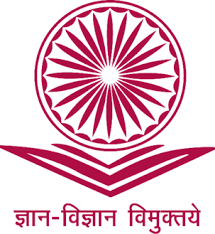Indian Government will fund 10,000 patents per year from educational institutions
- IP News Bulletin
- Aug 3, 2022
- 2 min read
Updated: Aug 4, 2022
According to a top official, the government would shortly introduce a programme to finance 10,000 educational institution patent applications per year. The action aims to motivate more academic members and students to defend their intellectual property rights.
The program's goal is to assist Indian higher education institutions in rising in the world rankings by excelling in the category of research and development.
According to M. Jagadesh Kumar, chairperson of the University Grants Commission, "under this programme, faculty members and students from higher education institutions can seek government funding to patent their innovations." Every year, the commission will finance about 10,000 patent applications. Students and professors from colleges and universities are invited to submit applications to the organisation that regulates higher education.
"In our university system, paper publishing takes centre stage. But the ecosystem has evolved since then. Additionally, we must defend our intellectual property, said Kumar. "As a result, we are urging faculty and students to pursue patenting through this upcoming programme."
According to AK Prasad, professor of intellectual property rights at Delhi University, the decision to institutionalise patent funding is a positive development. In this manner, he continued, "the patent's commercial value can be assessed." More patents may be commercialised as a result of this, too.
Patent applications can be pricey. While obtaining a patent in nations like the US might cost thousands of dollars, the cost of obtaining one in India is between 10,000 and 15,000 INR as per an estimate.
The owner of a patent frequently has to pay a yearly maintenance fee for about 20 years.
According to Prasad, maintenance is more of an issue than the filing of patents.
"Once an application for patent is filed, ongoing financial contributions are necessary since you must pay for every inquiry and amendment. The biggest issue with our system is that once anything is published, it needs to be maintained for about 20 years, according to Prasad. "If you have a project, you can file a patent, but if the project is completed tomorrow, you won't be able to maintain it. The suggested programme should include maintenance coverage from the UGC.
The patenting of innovations by students and faculty members in higher education institutions around the nation has been emphasised by the education ministry. The times are changing, declared education minister Dharmendra Pradhan in a speech at a symposium held at Delhi University in May. Our inventions are not eligible for patent protection. The Delhi University may begin offering a brief diploma programme in patent law.
While the Indian Institutes of Technology have seen an increase in patenting over the past few years, other universities are still catching up.
According to Kumar, the planned revisions to the PhD requirements would also advise teachers and students to patent their work.
While the need for publishing research papers in peer-reviewed publications for submitting the thesis has been eliminated, we firmly believe that teachers and students should patent their inventions.











Comments